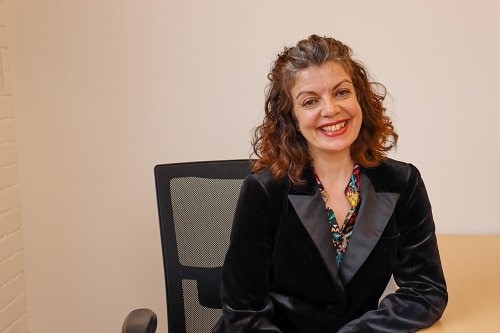Gathering meaningful data and insights on disability and the experiences of employees with disabilities can kick-start insightful conversations with staff on the best ways of making the workplace and the organisation more inclusive for disabled workers.
Features
Disability workforce reporting: a starting point for creating inclusive work cultures
How we measure disability inclusion in our workplaces continues to be a subject of much debate. Whether the driver is culture change or regulatory reporting requirements, data monitoring is often seen as the answer. But at Business Disability Forum we believe that numbers are just part of the picture and not an end in themselves. In this article, we look at actions all employers can take to make workplace inclusion an everyday experience.

Diane Lightfoot, CEO, Business Disability Forum.
Know what you are measuring and why
Earlier this year, Business Disability Forum worked with CIPD to create guidance for employers on how to start collecting meaningful disability-related workforce data. CIPD research shows that at present only 40 per cent of employers are collecting workplace disability data. This statistic highlights the difficulties that exist around capturing data of this kind.
Measuring disability is very different to measuring race and gender. Many disabilities are not immediately visible and language choice is very important here. Simply asking employees whether or not they have a disability is unlikely to return a true picture of disability within an organisation. Disability can be a very personal thing. An employee may be defined as disabled under the terms of the Equality Act (2010) but might never describe themselves in that way.
There is also the matter of fluctuating conditions. Data often captures disability as something that does not change. You are either disabled or you are not. For some people with an energy-limiting condition, however, their view of whether they are disabled may change from one day to the next and even from hour-to-hour depending on how their condition is impacting their life at that time. How does this get reflected in the data?
Employees are also less likely to share their data with you if they do not know how it will be used and stored. Clear communication around data monitoring is vital as is timing. Employees may not be so keen to share personal data with you if a redundancy round has just been announced, for example.
The guidance created by CIPD and Business Disability Forum (Disability workforce reporting: A practical guide for people professionals) recommends employers follow a clear plan based on the following steps:
- Know why you are doing disability workforce reporting and what you want to achieve. This will help you put in place a reporting cycle, help you understand the limitations of your approach and decide next steps so the data does not become an end in itself. Disabled employee networks should be consulted from the early planning stage and throughout.
- Decide what questions you want to ask employees. Use consistent disability-related wording. Consider whether collecting information on specific disabilities and conditions (as opposed to barriers) is needed.
- Choose your timing. Make sure monitoring is seen as beneficial to those taking part.
- Develop a communications and engagement plan. Be consistent in telling people what you are doing and why.
- Remind employees that they should never feel forced to share info and to respond in a particular way. Disabled employees and employee networks should be consulted on language use and individual communications.
Creating an inclusive culture
Data can act as a starting point for understanding a top line diversity profile but on its own is unlikely to fill any inclusion gaps. Feedback from Business Disability Forum membership shows that the real value of data gathering is often in the conversation it sparks. Really looking at what the numbers are telling us about the organisation’s culture, levels of engagement and how employees feel is key, as is creating a clear narrative about what actions you are going to take as a result. This transparency and an ongoing feedback loop – ‘you said, we did’ – helps to create trust and encourages more disabled employees to share. Case studies or story telling can really bring the numbers to life and show the real-life human impact behind the data.
Each year, Business Disability Forum hosts its Disability Smart Awards as a way of sharing tangible examples of how businesses have taken steps to improve experiences for their disabled employees and customers. The awards are not intended to be a measure of organisational-wide inclusion. Instead, the awards recognise the achievements of a team or an individual within a specific area of work and are a platform for showing what is possible.
Inclusion and impact are two of the key success criteria for the awards. Judges want to know how disabled people were involved in the project and how disabled people have and will benefit from the project. They want to see evidence of disabled people being involved throughout.
The 2023 award for Disability Smart Inclusive Workplace Experience was won by disability job board and career support service, Evenbreak, for creating a personalised recruitment process and individualised support for all employees. Judges were impressed by Evenbreak’s holistic approach to meeting the needs of disabled people, from the application process for potential employees right through to career progression opportunities for those already working for organisation. Disabled employees were consulted throughout with clear results (see 'Evenbreak' section below).
Measuring workplace inclusion
Measuring workplace inclusion is a complex subject with no easy solution. Gathering meaningful data is part of the answer but we also need to carefully consider how we translate that information into clear actions which positively impact the daily experiences of every disabled candidate and employee, such as we see at Evenbreak (see case study). It is only this combined approach which will help us to achieve true inclusion. Business Disability Forum will be publishing further findings from its Data Monitoring Working Group in early 2024.
Evenbreak – Winner of the Disability Smart Inclusive Workplace Experience Award 2023
The Disability Smart Inclusive Workplace Experience Award recognises organisations that demonstrate that they value the physical and mental health and wellbeing of all their workers, including disabled people.
Evenbreak created a personalised recruitment process and individualised support for all employees.
Potential employees are able to demonstrate their skills in any format they choose with candidates asked to submit a statement on the relevant strengths they bring to the role and organisation, instead of being asked for CVs or application forms.
Once employed, colleagues are provided with an individualised support package of coaching, counselling, mental health and wellbeing. They are also offered the ability to work in ways that best suit their circumstances. Adjustments are reviewed regularly.
Evenbreak provides its employees with training and development to help everyone progress in their careers.
If someone joins the team in one role but finds their skills and interests lie elsewhere in the organisation then they have the opportunity to explore other roles.
Commenting on their experiences, Evenbreak employees said: “When employers say they offer flexible working it often translates to flexible working that suits the employer and not the employee. That’s not the case at Evenbreak. We’re all encouraged to work in a way that works for us and our own needs. This truly flexible way of working really helps me manage my own disability needs.”
“I feel comfortable in being able to approach senior management about concerns, without fear of being struck down due to the culture put in place.”
In their feedback, Disability Smart Award judges said: “Evenbreak have created a truly innovative and personalised recruitment process, therefore promoting a truly inclusive approach to the workplace from day one. Their holistic support package for employees then enables their staff, including disabled people, to grow, develop and thrive in the organisation. This in turn feeds into the service that they provide – Evenbreak is an organisation that demonstrates inclusion can be achieved in everything an organisation does.”
Business Disability Forum’s Disability Smart Awards 2024 are now open for nominations. They are free to enter and open to UK and global organisations of any size in any sector. See:
businessdisabilityforum.org.uk
References
CIPD/Business Disability Forum, Disability workforce reporting. A practical guide for people professionals, tinyurl.com/399b5te4
Disability Smart Awards, tinyurl.com/39kfymcf
Diane Lightfoot is CEO of the Business Disability Forum.
FEATURES

Turning sustainability compliance into business opportunity
By Alastair Loasby, Saffery LLP on 27 February 2026
Businesses that publicly demonstrate good sustainability performance can reap financial, reputational and other benefits, but it’s important to minimise the cost of any reporting on sustainability issues and to focus efforts on improving aspects of sustainability where the benefits outweigh the costs.

How to mitigate the hearing loss cost escalation tsunami
By Peter Wilson, Industrial Noise and Vibration Centre (INVC) on 06 February 2026
Employers need to adopt the latest and most effective noise risk evaluation and management measures, or face rapidly-rising compensation claims for noise-induced hearing loss at work.

Young drivers and work-related road risk: why employers must act now
By Simon Turner, Driving for Better Business on 06 February 2026
Young drivers have a higher risk of being involved in road collisions due to factors such as their inexperience, so when employing them to drive for work, it is vital they receive the right support to help them grow into safe professionals behind the wheel.



